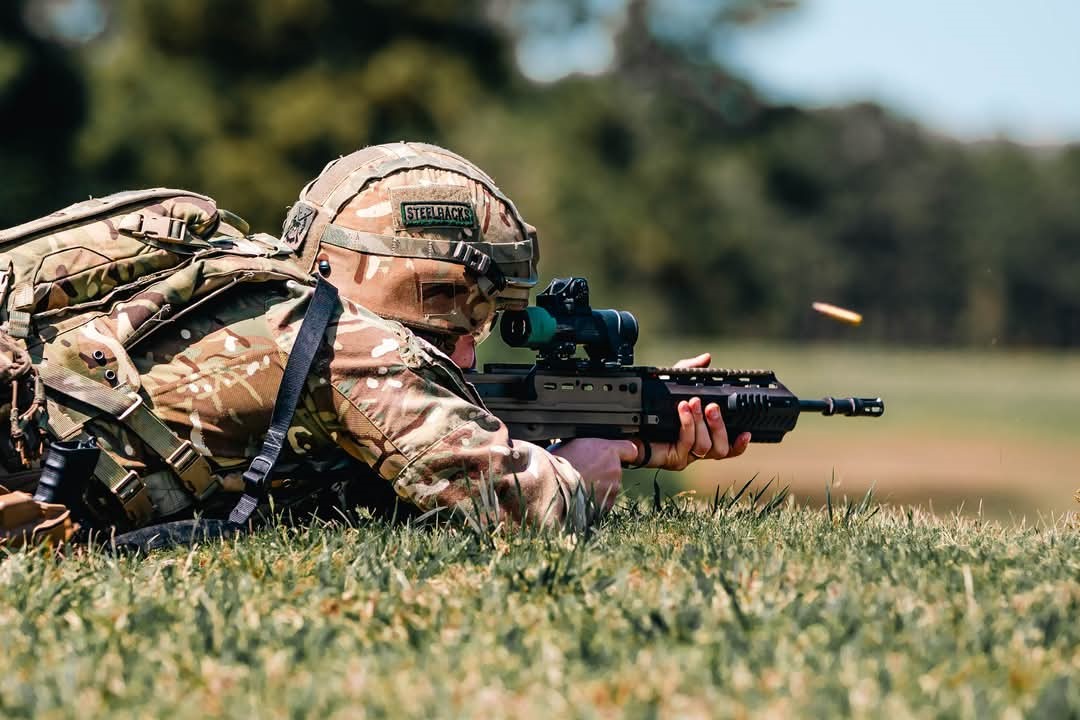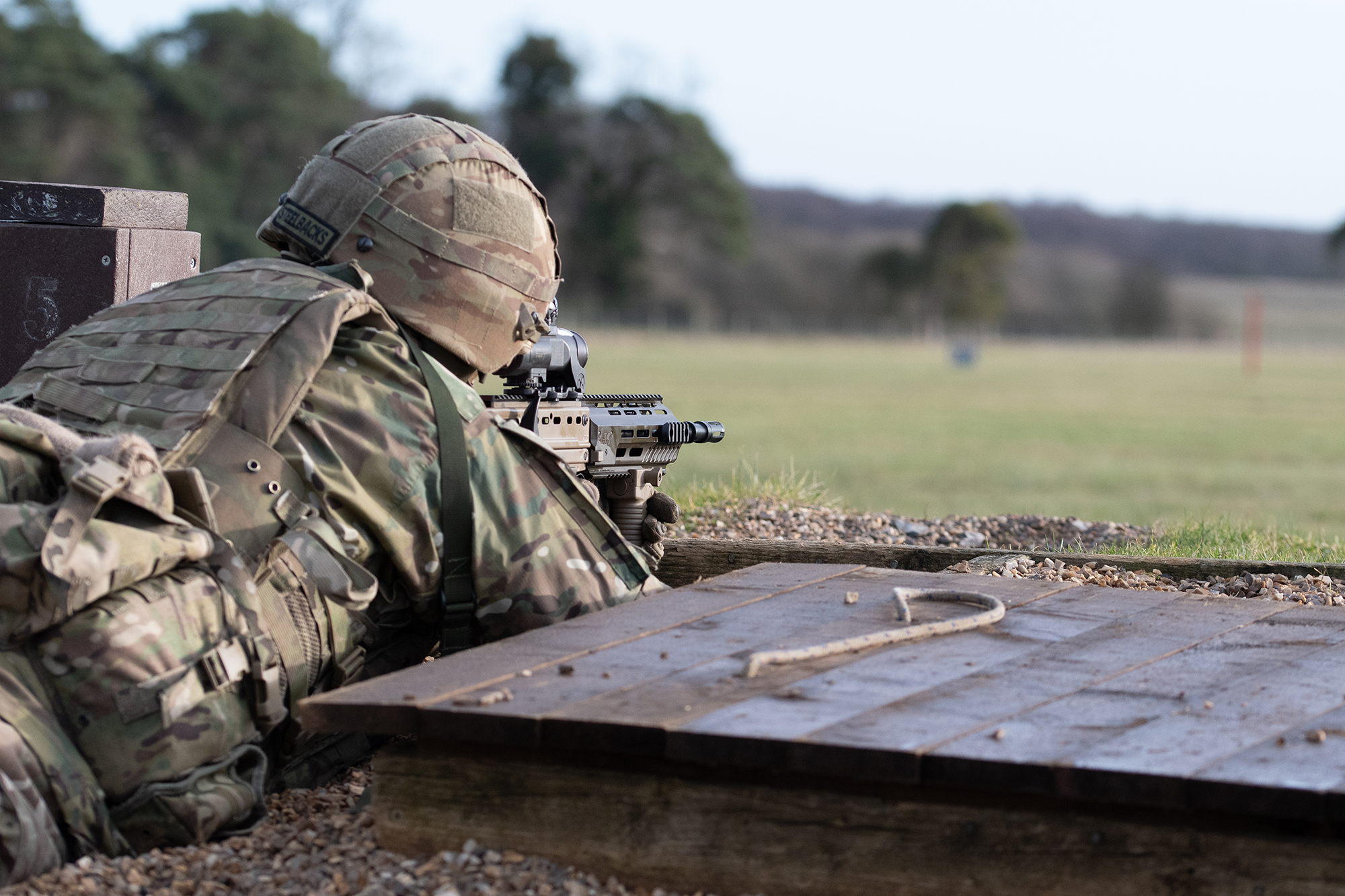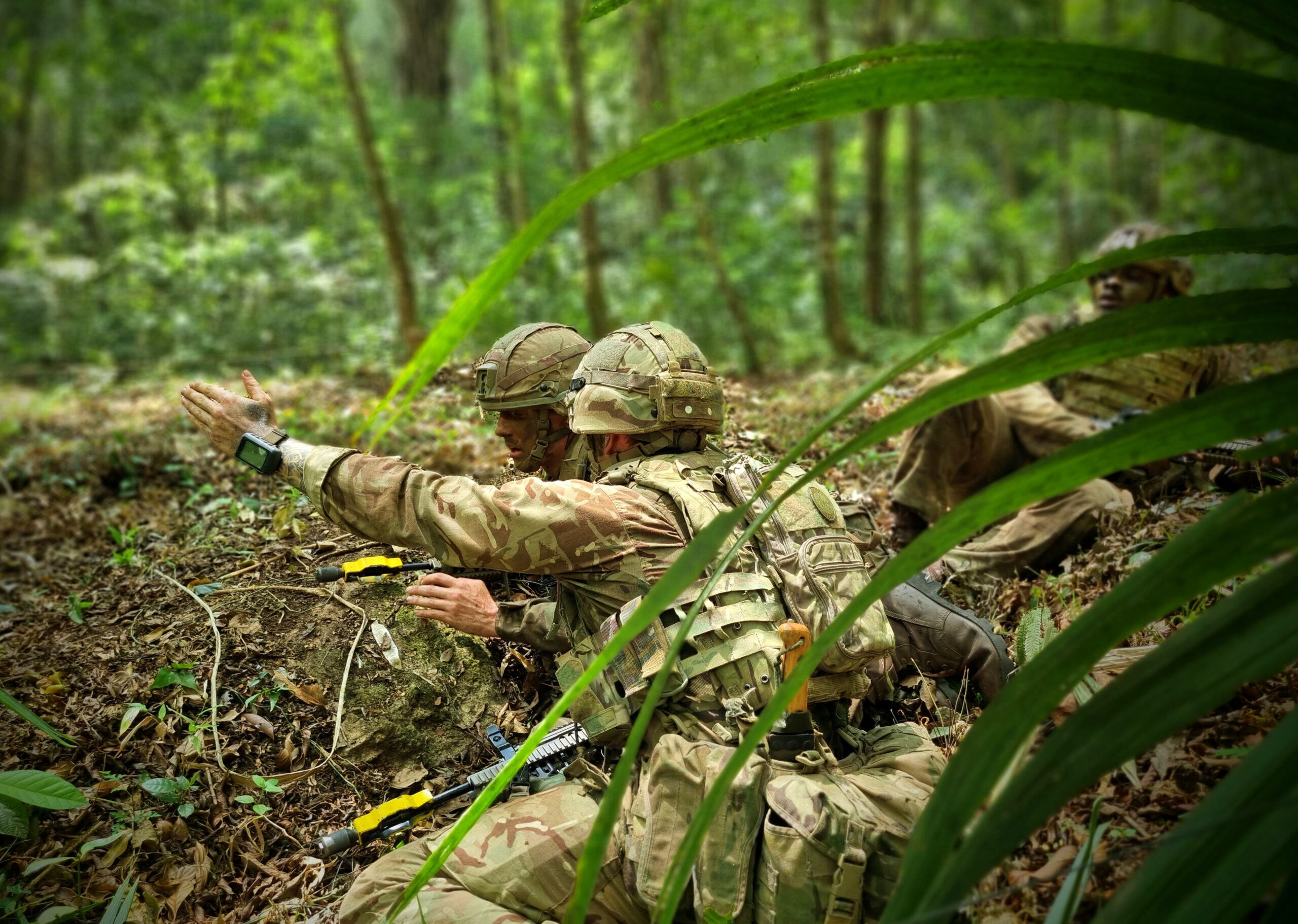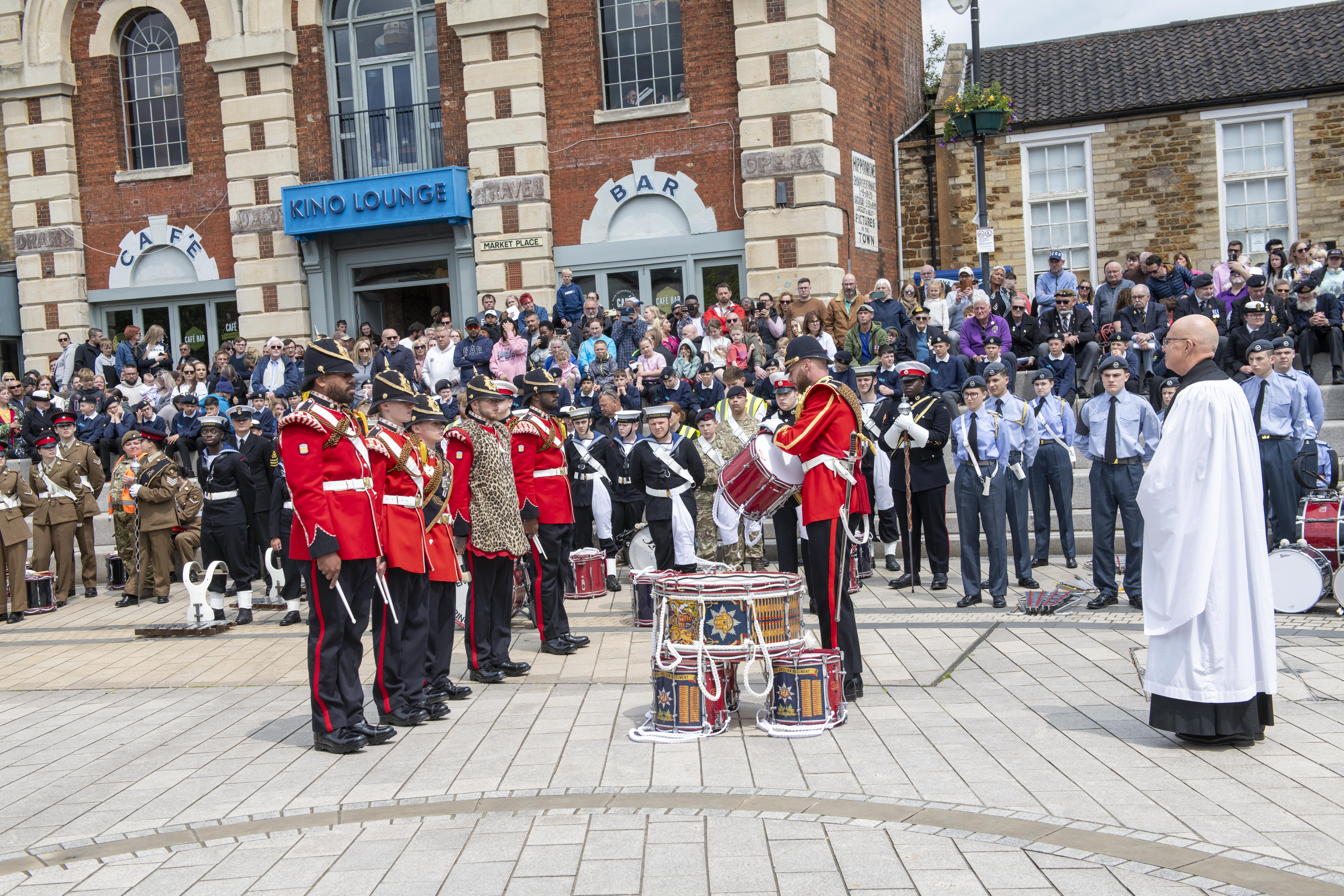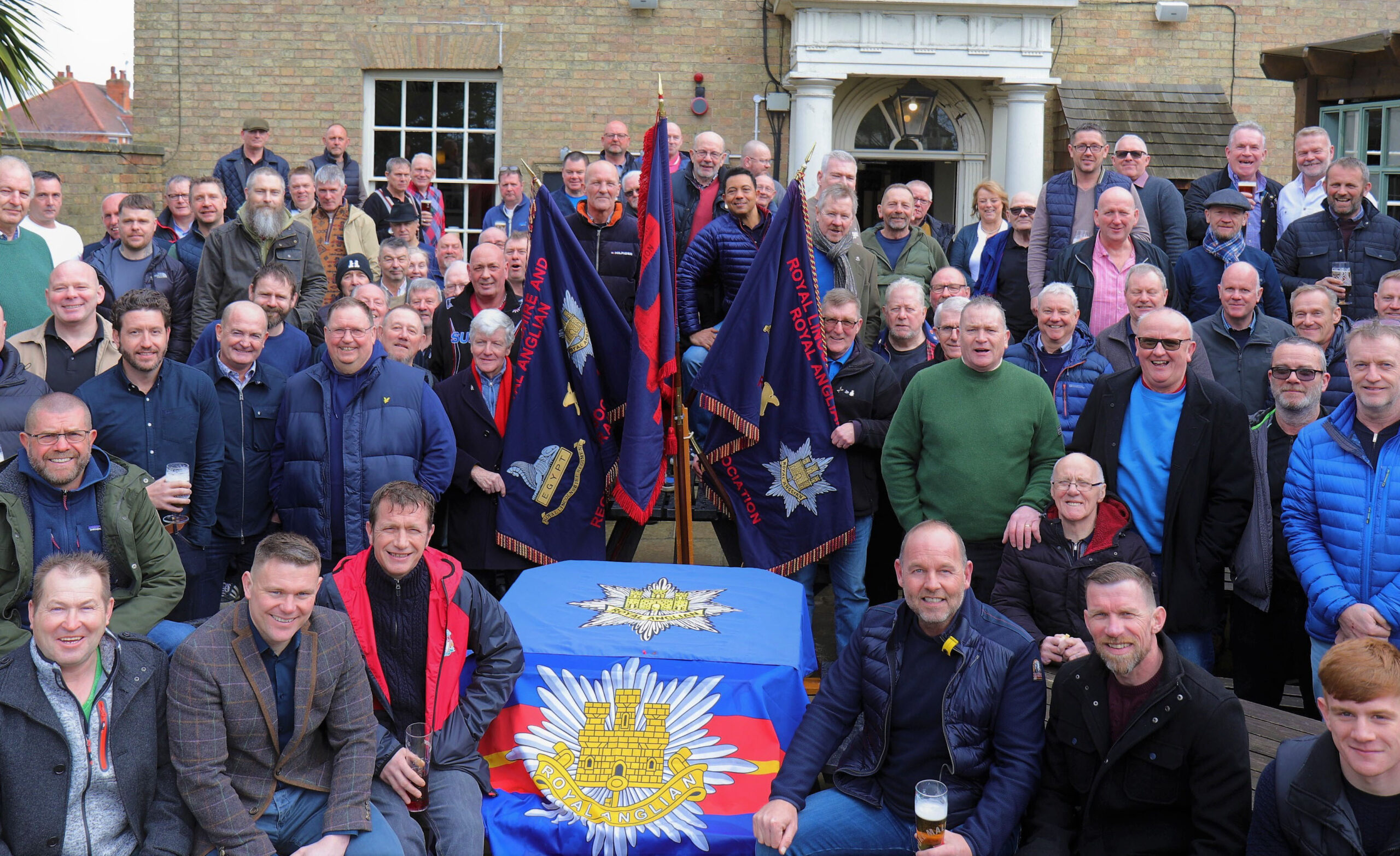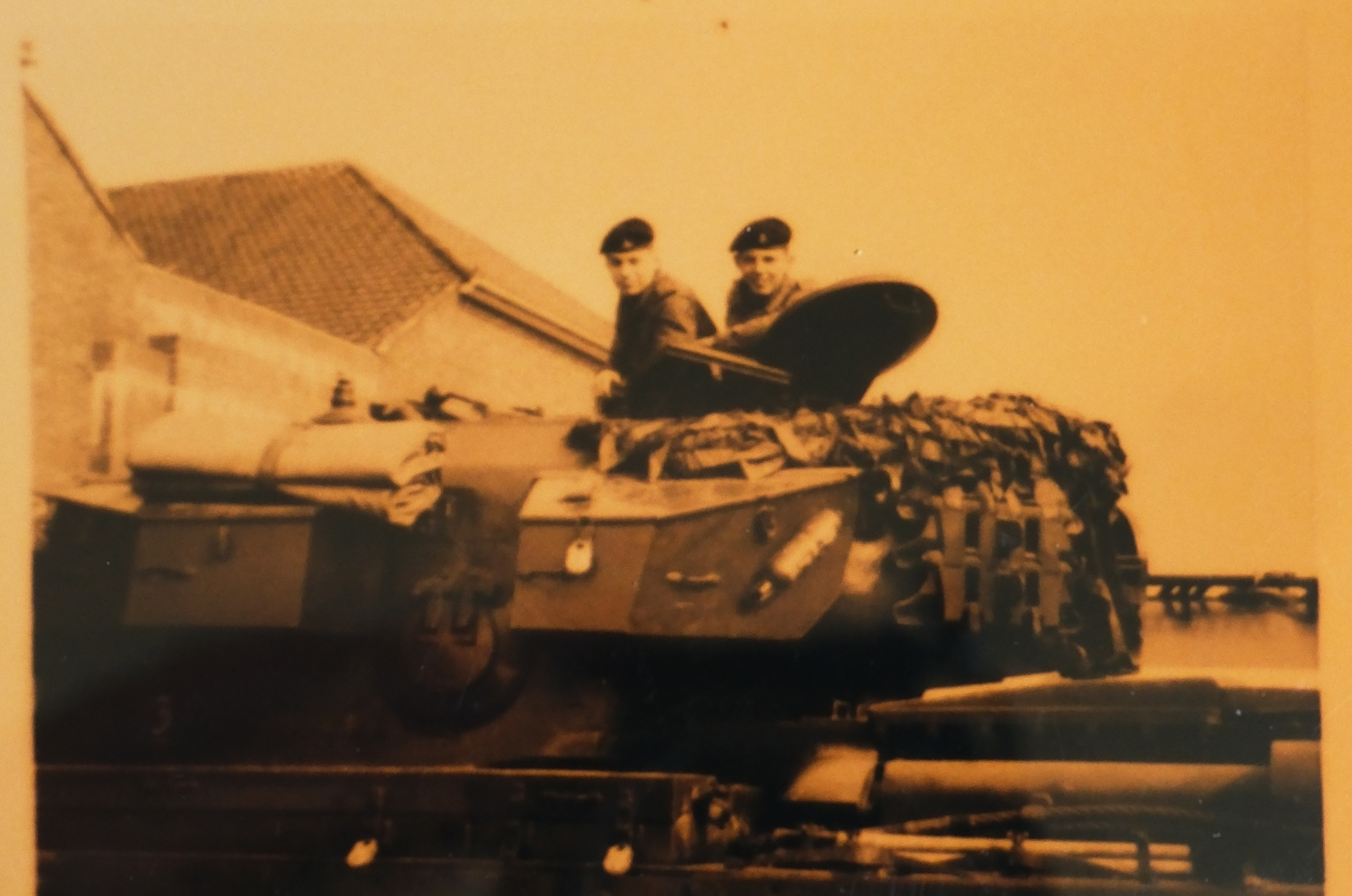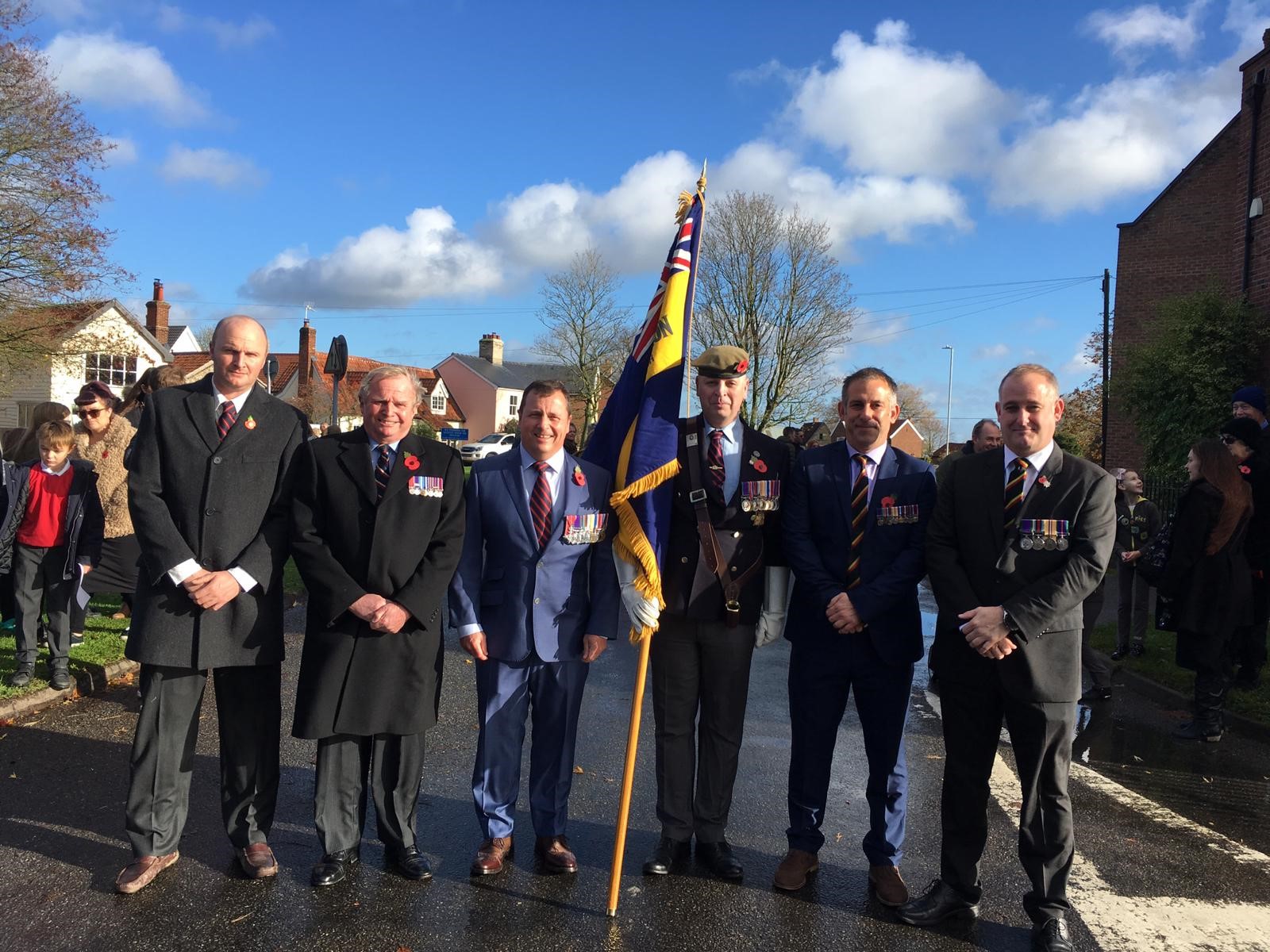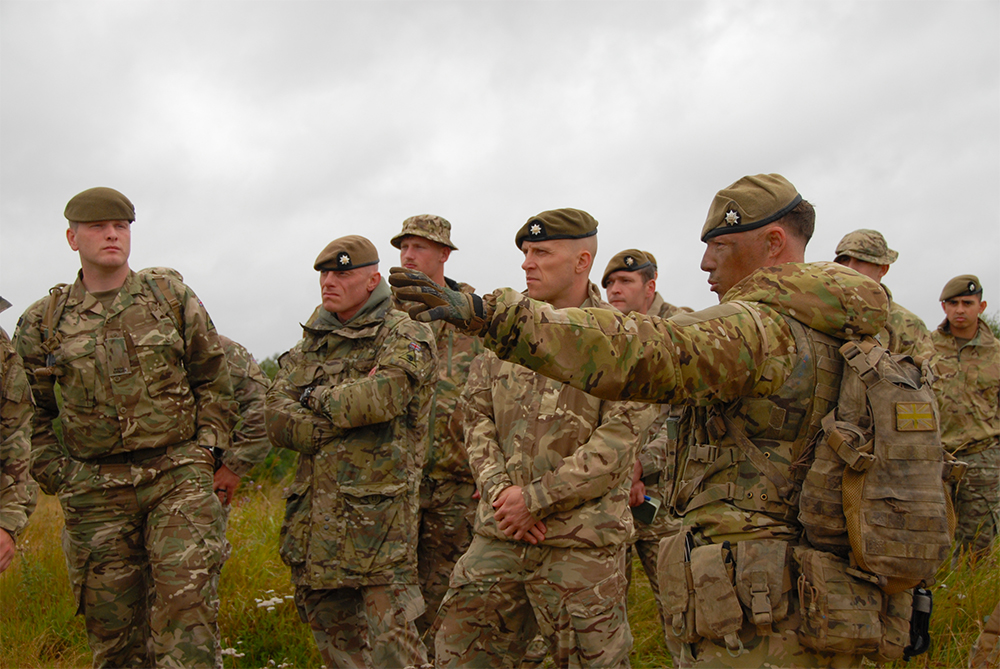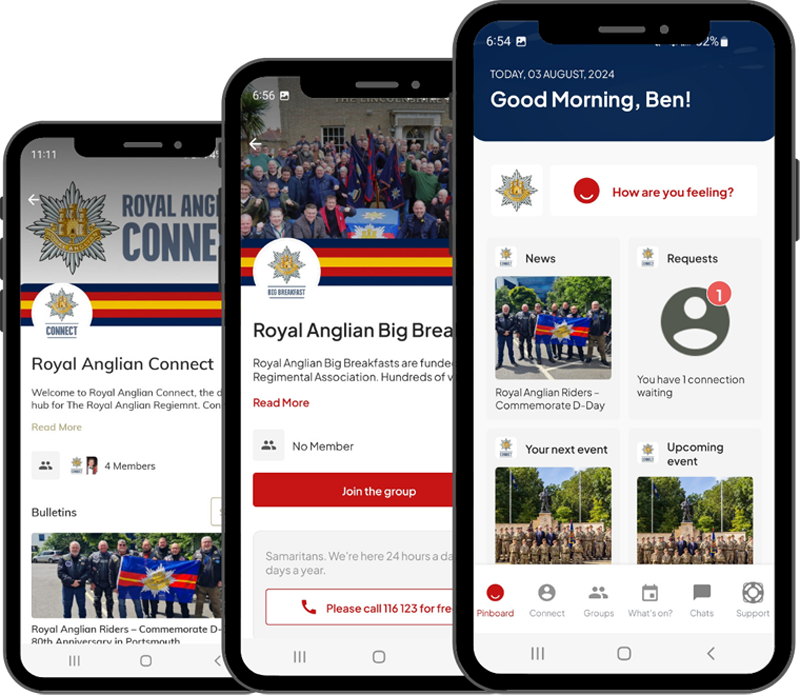
Obituary for Major Guy WM Hipkin
Guy Hipkin was born in Singapore on 11 July 1941. His father, Jack, was an officer in the Royal Artillery, who was captured when Singapore was taken by Japanese forces in February 1942. Bob Hastie, a close friend of Guy’s, tells the tale. “Guy’s mother was evacuated with her infant son just before the invasion. Together they travelled back to the UK where he grew up and subsequently went to school at Dover College.
Guy’s sporting prowess soon became evident when he won the coveted Victor Ludorum for the best athlete. After capture, his father was transferred to the Thai-Burma railway project, where he suffered appalling conditions. He became well known for his courage when, at considerable risk to himself, he intervened to save a very sick brother officer, who was being brutally beaten by one of the guards. Guy was very proud of him and it occurred to me that he would have done exactly the same thing himself.” Jack survived the camp and lived into his seventies, but never spoke about his POW experiences. Guy’s father was to have a strong influence on his son, who inherited many of his father’s characteristics: his determination, his care for the soldiers under his command, his camaraderie, his respect for others. Guy and Bob Hastie, with their wives, went back to Tonchan in 2000 in search of the former camp, but they found that there was almost nothing left to see.
Guy was commissioned in August 1963 into the East Anglian Regiment and was posted to the Second Battalion in Osnabrück as platoon commander. A member of his platoon recalls: “He was an officer and a gentleman. He was my first platoon commander in 5 Platoon, B Company. A great sportsman, he sent me on my first Physical Training instructor’s course. He was the only officer I knew who dropped the rank when he called you in for a chat. He wanted to know each one of us as a person, likes, dislikes, strengths and weaknesses – a very human touch. The family must be very proud of him. I know I was proud to serve with him”. Peter Welby-Everard recalls a special reception ceremony for a young officer joining the Battalion. (Pranks like this were something which Guy could not resist). Guy’s role was to play the part of the Judge Advocate General, who was defending another officer on a charge of indecency. Apparently, he put the fear of God into the poor man, almost causing the other players to collapse in fits of laughter but, knowing Guy, as soon as the dust had settled, he would have been the first to console the poor guy, take him to the bar and buy him a stiff drink.
In 1965, the Battalion was posted to Cyprus and from there to Aden. By then, Guy was a Lieutenant. His platoon was on duty at a checkpoint, when Guy told his platoon sergeant that it was his birthday, as if he had only just realised it. Guy then told his sergeant that he was now in command, disappeared for some 15 minutes, only to reappear with a bottle of champagne and some caviar so as to celebrate properly with his platoon. How far both reached around the platoon is academic, but the gesture was typical of him: no half measures, look after your own boys and do things with a bit of flair. After three years with the Battalion, Guy was posted to the Depot in Blenheim Barracks, Bury St. Edmunds as Platoon Commander and Skill-at-Arms Officer. His platoon sergeant was Roger Jones, later RSM Jones: “I have many happy memories of Guy. I remember that he had a very sporty, green MGB GT, in which we used to travel to various training areas. He loved trying to scare me to death by driving down narrow country lanes at very high speed. Looking back now, we must have been mad, as an accident would have finished both our careers. We once used a small training area near Sizewell atomic power station as a ‘bedding in’ exercise for new recruits. One evening, in full combat kit, we both sneaked off from the exercise to find a pub in nearby Aldeburgh. The pub was full of very well dressed upper class types enjoying a pre-theatre drink. Guy had just bought me a drink and we were standing at the bar when he was confronted by a red-faced elderly gentleman who, in a loud upper class accent that silenced the pub said, “You know, in my day officers did not fraternise with other ranks.” To his eternal credit, Guy, not knowing whom he was speaking to, replied in his typical laconic, well-bred tone of voice, that it was no longer his day and that he should go away. From that day on, he had my total loyalty and respect. Over many months, we worked so well together and enjoyed each other’s company, especially during the many days and nights spent on exercises at Thetford Battle Camp. The recruits used to call him the ‘Gent’ (behind his back) shorthand for gentleman – an apt nickname, because he was, in my opinion, a true gentleman officer of the highest quality.”
In 1968, Guy returned to the 2nd Battalion in Gillingham. The Battalion then moved to Colchester and from there embarked on a series of deployments to Gibraltar, Northern Ireland, Kenya, Malaya and finally to the British Army of the Rhine (BOAR). During the battalion’s deployment to Kenya in 1970 on Exercise Bersatu Padu, he was to have 2 lucky escapes. While on patrol through the bamboo fields, a rhino suddenly broke cover onto the path in front of him. Guy froze, keeping his eyes on the rhino, which, after a seemingly eternal pause for decision-making, set off in the other direction. Later, on the same exercise, he was travelling in a helicopter, which lost power close to the ground and crashed. It then turned over and Guy was thrust down by the weight of the helicopter into the sandy soil and became trapped underneath it. Some considerable time elapsed before he could be freed and taken to a local hospital. After treatment, Guy spent a while in a wheel chair, already back to his old self, chatting up the nurses. Throughout both incidents, Guy kept his nerve and his cool, an example to those around him, indeed a chip off the old block.
In July of that year, he married Thea, a lovely, vivacious, attractive Scottish lass whom he had met at a mutual friend’s wedding, where Guy discretely noticed a fine “pair of pins” arriving in church. They were married in Crieff, Perthshire, followed by a reception at the prestigious Gleneagles Hotel. Thea was a very intelligent young lady, who studied maths, psychology, logic and metaphysics at Edinburgh University. Together they were very sociable and were known as above all generous, popular and amusing hosts.
In 1971, Guy was posted to the Army Apprentices College and they both moved to Arborfield for two years, before Guy returned as a major to the Poachers in Münster, West Germany in 1973. He commanded HQ Company, soon getting to grips with all its departments and cubbyholes. Competitive as ever, he pushed them into any competition going, just to give the Rifle Companies a chase. When the Battalion deployed on an emergency tour to Belfast in 1973, he was appointed OC Rear Party. His CO at the time, Charles Barnes, recounts: “Guy Hipkin was a marvellous and resourceful OC HQ Coy and OC Rear Party in Münster. He and his wife Thea were instrumental in keeping up the morale of the families during the Battalion’s difficult tour in Belfast. They were both, particularly, an enormous help to my wife, all three working as a team to solve any problems which arose.” Charles continues: “He also made an outstanding PMC of the Officers Mess, where he produced the highest standards”. Once again, Guy was proving that, whatever job he was given, he would knuckle down and give it his best, sometimes, no doubt, putting aside his own disappointment, yet never letting his feelings come to the surface. Mike Beard writes: “My early recollections of Guy and Thea are of their hospitality in Münster and their kind and valiant efforts to match-make myself and other subalterns with some young ladies, sadly with limited success! Guy was a keen sportsman with a good eye for the ball and always keen to maintain standards in performance and sartorial style. I have a photo of the Poachers cricket team in Gillingham, with Guy the only one of us sporting a blazer!”
Kevin Hodgson, Recce Platoon Commander in Guy’s HQ Company, recalls: “First of all, I remember Guy as an officer and gentleman, who cared greatly for all those under his command. However, he did have a fiercely competitive streak, both on the sports field and in pursuit of the dreaded Champion Company Competition. As OC Recce, I had just about the only source of formed manpower in HQ Coy, so Guy and CSM Smith were always after my chaps for fatigues or guards. It all came to a head when Guy had the Signals Platoon run D10 cable and a field telephone up to the Recce Platoon office, which was on the top floor of the block next to Guy’s, “So that I can get hold of you easier”. Needless to say, the telephone and cable were never seen again, but from then on Guy sent me runners clutching memos……aaagghhh!
Kevin also remembers the Hipkins’ hospitality. “As a young subaltern, I remember Guy and Thea, along with Bobby and Georgina Hastie, as the rather glamorous pads in the Oxford Barracks Mess, very good fun at any sort of function and terrific, generous and stylish hosts in their own houses.” A generous tribute by Kevin and one, which almost every Royal Anglian officer who served together with Guy and Thea would confirm.
There followed a tour as Company Commander at the Depot, then in Bassingbourn, followed by two years as a staff officer in HQ Northern Ireland in Lisburn. In 1979, Guy was posted back to HQ Queens Division in Bassingbourn as Regimental Careers Officer (RCO). This was a job which Guy was ideally suited for. Robin Drummond recounts how he quickly established excellent contacts with the Headmasters and Careers Masters of the larger public schools in East Anglia, who held him in very high regard. Through them, he gained access to those young men whose abilities and qualifications made them potential candidates for a career in the Regiment. Guy would then follow up, ‘keeping his tabs’ on these young men. Using his friendly, straightforward and relaxed manner, he was able to convince many of them to join the Regiment. He was playing Regimental cricket at the time and he used matches against the schools to meet potential officers, thereby raising the Regimental profile in East Anglian public schools. Dick Gould recalled: “He was dedicated in his desire to recruit suitable officers for the Regiment and went to great lengths to nurture and encourage those on his books. Many of our senior officers were recruited by him”.
In 1982, he returned to the Poachers in Colchester and was appointed Public Relations Officer (PRO) and PMC in the Officers Mess. When the Battalion became involved in the Tercentenary celebrations, including a Troop, a Royal visit and a ball, Guy became a key player. His were complex and demanding organisational tasks. True to form, refusing to be distracted or flustered by sudden, last minute changes, he kept his eye firmly on the task in hand and saw it through to completion. Roger Brunt, then Adjutant, wrote: “The wonderful thing was that he was never upset by it all, but he calmly absorbed the pressure as if it didn’t matter a jot and then got on with the job.
Guy was surely a person of infinite resource and sagacity and you could always rely on him to deploy both qualities at short notice and in huge abundance.” Again, during the Battalion’s next tour with the UN in Cyprus, he was PRO and PMC of the Officers Mess. In addition, he was made Visits Officer and had to cope with a large number of visitors, from other both UN units and elsewhere. As PMC, he was doubly committed, since the visitors almost always had to be entertained to a first class meal in the Mess. In all these roles, he was under pressure to maintain high standards and, with his resourcefulness, attention to detail and unflappable nature; he produced results which were a credit to the Battalion. Later, when the Battalion deployed for training in Fort Lewis, Washington State, USA in February 1985, Guy’s press handling, organisational and hosting skills were again in demand when the Battalion put on a military show in the local Tacoma Dome before the whole battalion deployed on exercise. There was a great deal of press interest, which Guy managed and nurtured skilfully, helping to achieve a most successful show and some very positive PR for the Battalion.
Guy’s final posting was to RHQ in Bury St. Edmunds in 1985, where he served as Regimental Careers Officer. This was to be his swan song, for it was a job to which he was ideally suited. Using his skills already acquired in Bassingbourn, he traversed East Anglia, talent spotting and re-establishing his old contacts in the public schools, while also making new ones. Charles Barnes recalls: “Later he served a number of years as Regimental Recruiting Officer, more years than normal and quite simply because no-one else at the time would have been as good as he was. I had first-hand knowledge, as Divisional Brigadier, of the admiration and respect he was held in by the Career Masters of the schools in our recruiting area. The Regiment owes him much for his work in this area.” Michael Aris writes: “When I retired from the Army, I worked for the John Lewis Partnership, where I met a fellow partner who had been in the Royal Signals. He had a son about to be commissioned and I naturally thought that he might be going into his father’s Corps. Not a bit of it. He was going into the Royal Anglian Regiment and his father told me that was directly because of all the help his son had received from Guy. The only person who really, properly looked after him with advice and help was Guy. Guy had even been to see the boy’s parents.” Michael Aris cited another example of Guy’s achievements: “Some years ago, I was privileged to be asked to take the CCF parade at Loughborough Grammar School, my old school and at the end I was asked to present the “Hipkin Cup” to the winning team in the Naval Field Gun competition. Guy had established firm and valuable contacts with the school and it made me feel proud to present the cup given by a brother officer who had been my friend. I attended the parade again in April 2016 and the Hipkin Cup was still being awarded to the winning team. The Regiment owes him a great debt of gratitude. I always felt that he did a marvellous job.” Both accounts demonstrate Guy’s humanity, dedication and preparedness to go the extra mile. He again skilfully used the Regimental cricket team in his recruiting efforts and matches were organised against the public schools within the recruiting area. Drinks after the matches provided an ideal opportunity to meet potential young officers, make a note in his book and follow up on his next visit. Dick Gould, who succeeded him as RCO recalls: “He was dedicated in his desire to recruit suitable officers for the Regiment and went to great lengths to nurture and encourage those on his books.” There is no doubt that in his years as RCO, Guy left the Regiment a lasting legacy by identifying talented young men, building up a personal relationship, investing time and effort in them and overseeing their path into the Regiment. Many of them are today senior officers in the Regiment.
At this point, it is appropriate to do justice to Guy’s achievements as an outstanding sportsman. Sport was a very important feature of his life. It was a haven from the vicissitudes of life, it brought him fresh air, fresh ideas, a chance to breathe deeply and swing his shoulders or lengthen his stride. Afterwards, he would return to the everyday routine refreshed and ready to go. Sport also brought in new acquaintances and friends. The first inspiration probably came from his mother, who was an accomplished tennis player, but Guy had an athletic build, was fit and had a very competitive nature. This first came to the fore while he was at school. He was made captain of the football team, even though he did not particularly like the game. Later, he preferred rugby, where he developed into a successful player. He was also very strong on the cricket field, where he turned into an outstanding batsman. Gordon Brett recalls their first meeting at a school cricket match, where Guy scored close to, or just over a century, an achievement almost unheard of at such a young age. Julian Browne, who played a lot of cricket with him, wrote: “He was such a gifted sportsman, but always modest and self-effacing.” Early on in his military career, he played squash for the Army. He went on develop his cricketing skills and played for many years in the Regimental team. If he had a favourite game, this was probably it. He also played a lot of tennis and enjoyed that too, preferring a strong men’s singles or doubles. When playing mixed, he was polite and courteous, even when his lady partner made one mistake after the other. Despite his competitive nature, he would remain calm, fair and dignified on court. Only later at home, was he now and then heard to mumble one of his favourite phrases: “The whole thing was a can of worms”. Other chestnuts, which many will recall were: light-heartedly referring to his three children as “Two mistakes and a miracle…”, “Steady in the ranks….” and he had a near-daily routine of declaring that “The sun’s over the yardarm…” – usually the call for a stiff whisky. Guy’s humour was spontaneous, genuine, self-effacing, sometimes a little mischievous, but never malicious or designed to embarrass others.
Guy retired from the Army in February 1994 and was appointed Secretary of the prestigious Royal Worlington and Newmarket Golf Club on 1 April 1994. For those who do not play or follow golf, the Royal Worlington is considered one of the finest nine-hole golf courses in the world and was granted the right to assume the title “Royal Worlington” in 1895. The family moved from Cambridge to Newmarket to be closer to Guy’s place of work. A very talented golfer himself, with his good humour, natural charm and outgoing nature, he quickly became very popular in the Club. He was the first to admit that, since he was never fond of pushing paper, the administrative side of his job soon became a challenge. But typical of the way Guy and Thea were always there for one another, Thea was able to help in sharing this load. By this time, Thea was also a keen golfer and both Guy and Thea shared the rarest of achievements in both having scored a hole-in-one. After seven happy years at the Club, Guy retired as Secretary in 2001. He is still greatly missed by the staff and members of the Club, who held a minute’s silence for him after hearing the news in August. Following his retirement from the Club, Guy and Thea made best use of the opportunity to pursue their sporting interests and to travel.
But, from 2004, Thea fell ill and Guy set about devoting his time to looking after her, while keeping home and garden up to scratch. David, his son, recounts: “At this time of personal hardship and tragedy, father found the resolve to somehow cope. Thea’s sister, Janet, described him during these years as “terrific; the most patient and kind I had ever seen him.” After a brave fight against her illness, Thea passed away in 2009. A very large number of Regimental friends of the family, as well as local friends and acquaintances from the Newmarket area attended her memorial service. Guy was distraught at the loss of Thea and the way she had had to suffer. His family did what they could to help him through the next months and, if there was any good to come out of Thea’s passing, it was in the strengthening of the bond that Guy had with his children.
Guy was a dedicated, truly loyal Regimental officer, who so aptly fitted the description of “an Officer and Gentleman.” This description of him featured in virtually all the tributes sent in by his brother officers and soldiers alike. He was an officer who set high standards for himself and for those under his command. He was highly respected by his men, who valued his style of leadership by example, his humour, his interest in them as individuals, his ability to drop the rank when the situation demanded it, his human touch. For his brother officers, he was a very popular and respected colleague, straightforward, reliable, honest, humorous, entertaining, fun to be with and always ready for a joke or a prank. Lance Gerrard-Wright, one of those brother officers said: “a lovely man who always twinkled…..a man with whom you always knew what you were going to get: integrity, honesty and a laugh!” Gordon Brett, who served with Guy as a young officer, said: “Guy, as a young subaltern, cut quite a dash, which attracted a female fan base, much to the envy of others.” Guy was honourable and stood by his word. He seldom raised his voice or showed bad temper. His code of behaviour, no doubt inherited from his father, was strict and clearly defined: many a young subaltern was pulled up sharply, having crossed the bounds of propriety. Guy was also a determined individual and once he had set his mind on an issue or a task, he would not easily be deterred from it. He did not suffer fools gladly, especially if they were interfering with the task in hand.
However, he was always approachable and had an open mind when meeting new people. His generosity and hospitality, and that of his lovely wife, Thea, deserve special mention. Janet again: “Guy was a terrific host: no waiting around for a drink to be offered or a glass refilled. And always full of bonhomie and life and chat.” Their parties were invariably characterised by generous hospitality, hilarious laughter, animated conversations and convivial atmosphere. Thea was the perfect host, producing a sumptuous meal before looking after her guests as if she did the same thing, day after day. Julian Brown recalled: “Guy was such a charming man and with Thea, they were the most attractive and fun couple to be with.”
Guy was at heart a family man. Thea, his son David and his daughters Victoria and Louise were, from the start, the most important people in his life. He was at his happiest when in their company and he was devoted to them: his number one priority was to do everything possible to ensure their happiness and success. After both daughters married and produced grandchildren, these too joined the small circle of those who were dearest to him. He cared deeply about all of them and they were always welcome. Speaking of earlier days, Louise told how, when one of the family was going home for the weekend, they could be assured that Guy would be at the front door to greet them, making his way to meet them before they had even finished parking the car. On leaving, he would wave them goodbye until he could see them no more. Many of his close friends will also recall this special welcome and farewell.
After Thea passed away in 2009, he sold the family home in Newmarket and moved to Hartest, Suffolk. He continued to pursue his love of gardening and was frequenting the golf club and tennis club several times a week, loving the social life that came with it. Guy met Anna Warren-Thomas and they soon found that they had much in common. They became good companions and embarked on many holiday trips together. At home, they would spend hours in the garden tending their beautiful roses. When Guy became ill, Anna looked after him and provided great support and comfort. Anna said of him:”I think Guy is the most loved person I have ever known.”
Guy was diagnosed with Myeloma in March 2016. This aggressive form of cancer took its toll on Guy and within a short time, he was unable to continue doing the things he loved. Anna and his three children were of great support to him during this time. Guy passed away on 20 August 2016. He leaves behind his three children who miss him and their mother dearly. Guy had a happy and contented life and he had lived it to the full, bringing happiness to his family, whom he loved above all else, but also to his friends and acquaintances whom he met along the way. A fine man, a selfless, gregarious man, who enjoyed the bonhomie, the comradeship, the team spirit and diversity in the service environment, yet also found adequate substitutes during his retirement. He led by example, he taught us not to be deterred by the vicissitudes of life, but to push on and afterwards to “enjoy a good knees up and have a good laugh”. The final words go to David, writing shortly after Guy had passed away:
“Father left us at the weekend. His incredibly fit body and strong spirit kept him fighting, but he died on Saturday morning. As he passed, there was a huge gale in Suffolk, rattling the trees he used to see from his garden; it only cleared an hour later as he completed his journey to be back with mother, and the winds died down and the sun came out.”
RGG


